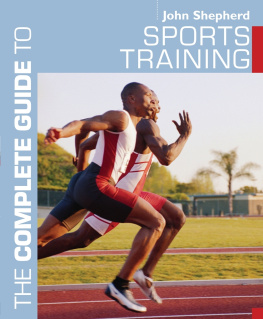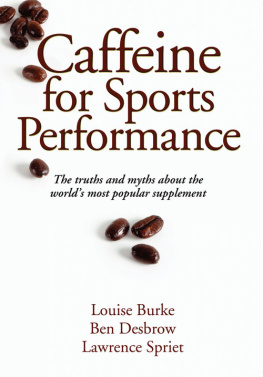Copyright 2018 by Pond Lane Productions, Inc.
All rights reserved. No part of this book may be reproduced in any manner without the express written consent of the publisher, except in the case of brief excerpts in critical reviews or articles. All inquiries should be addressed to Skyhorse Publishing, 307 West 36th Street, 11th Floor, New York, NY 10018.
Skyhorse Publishing books may be purchased in bulk at special discounts for sales promotion, corporate gifts, fund-raising, or educational purposes. Special editions can also be created to specifications. For details, contact the Special Sales Department, Skyhorse Publishing, 307 West 36th Street, 11th Floor, New York, NY 10018 or .
Skyhorse and Skyhorse Publishing are registered trademarks of Skyhorse Publishing, Inc., a Delaware corporation.
Visit our website at www.skyhorsepublishing.com.
10 9 8 7 6 5 4 3 2 1
Library of Congress Cataloging-in-Publication Data is available on file.
Cover design by Tom Lau
Cover illustration: iStockphoto
Print ISBN: 978-1-5107-1637-7
Ebook ISBN: 978-1-5107-1638-4
Printed in the United States of America
So what are you going to do about it?
Harvey Dorfman, when confronting a struggling athlete
ADVANCE PRAISE FOR
SECRETS OF SPORTS PSYCHOLOGY REVEALED:
Theres a substantial amount of confusion and mystery surrounding sports psychology. But if you want a highly readable primer that cuts through all the clutter, Id highly recommend Rick Wolffs Secrets of Sports Psychology Revealed . It contains tremendous insights for any top athlete.
JOHN HART, former General Manager for theCleveland Indians, Texas Rangers, and Atlanta Braves
I met Rick as a young minor-league player, close to thirty years ago. He was my introduction to sports psychology, making a big impact during the most formative years of my professional career. Rick helped me better understand how to handle the successes and inevitable failures associated with high competition. To this day I consider his counseling to have been an important element in my maturation as a baseball person, and even in my ongoing efforts to be prepared for what comes next.
JERRY DIPOTO, Executive Vice President and General Manager, Seattle Mariners
Every winner in athletics, business, medicine, etc. demonstrates qualities that you can observe as well as those inner attributes that you cant visually see. Rick Wolff, in his latest book, clearly defines and illustrates, in a practical way, how you can improve your performance both on the field as well as from behind your desk. His proven approach will be a guide for you to personally enhance your mental and emotional skills.
AL GOLDIS, former major-league executive and member of the Baseball Scouts Hall of Fame
Through his unique first-hand experience, Rick Wolff is able to consider the evolution of sports psychology and provide each athlete with easily applied tools and approaches to elevate his or her game. The mental side of sport is the key to bridging the gap between potential and performance and Ricks Secrets of Sports Psychology Revealed will provide anyone interested in elevating their game with easily applied approaches to consistent, improved mental performance.
MARK A. SHAPIRO, President and CEO, Toronto Blue Jays
We in baseball face a daunting task of trying to discern which player has that little extra that will propel him to the major-league level ahead of others of the same skill sets. There are many aspiring athletes out there who want nothing more than to ascend to that next stratum. Rick Wolff in his new book can help you achieve that goal with his use of mental cue cards, muscle memory and visualization techniques to augment your physical skills. He breaks down problem areasbelieving in oneself, dealing with nervousness, and working through adversity and turns them into positives. Any coach or aspiring player needs to read this book to learn the secrets of being ahead of the competition before the game even begins. If youre interested in elevating your game and leaving behind some of those stumbling blocks of the past, then this book can only expedite the accomplishment of your goals. Physical ability takes you so far, but the mental and psychological sides of your persona shape your destiny. Read it and youll be ahead of the competition.
JOE McILVAINE, Senior Advisor, Baltimore Orioles
The difference between success and failure between the lines is in your headremember, most hitters enshrined in Cooperstown failed in 7 of every 10 at-bats in their Hall-of-Fame careers. Rick ventured early into the world of sports psychology, and his approach to performance has helped athletes in all sports achieve from the little to the big leagues. This is a valuable read for athletes and coaches alike.
GEORGE C. PAPPAS, International and Minor League Operations, Tampa Bay Rays, and author of A Tribe Reborn: How the Cleveland Indians of the 90s Went from Cellar Dwellers to Playoff Contenders
CONTENTS
A LITTLE BACKGROUND
I FIRST BECAME OBSESSED WITH sports psychology in the early 1970s when I was an undergraduate at Harvard. Although not very well known, Harvards baseball team during that time was more than just goodit was one of the top baseball college programs in the nation. Not only did the Crimson win the Ivy League crown seemingly year after year, but in my sophomore year (1971) we advanced all the way to the Division I College World Series in Omaha.
Harvard returned to the College World Series again in 1973 and 1974, but by then I had already been drafted and signed by the Detroit Tigers. And just for the record, the Crimson played in the CWS in 1968 as well, so appearing in the Elite Eight in Omaha on a fairly regular basis was no fluke.
From the team I played on, we had something like eight or nine players drafted into pro ball. Pete Varney, our AllIvy League slugging catcher, was a first-round draft choice by the Chicago White Sox and played several years in the big leagues (Ivy League football fans will recall that Pete also caught the winning two-point conversion against Yale in the famous 2929 tie game). In any event, as a 6-foot, 165-lb. second baseman, I had excellent speed, range, and sprayed the ball to all fields. But like any aspiring ballplayer, I always fell prone to the occasional batting slump. To counter this, I spent countless hours in the batting cage, trying to hone and finesse my skills to such a fine point that I would, ideally, never again get fooled by a curveball or foul off a fastball that was right down the middle.
In my view, I should be able to train my muscles to react instantaneously, and in just the right way, no matter what the pitch. In my perspective, if I could master this basic psychological approach, I should be able to hit, and hit well, at any level of pro ball.
But as I searched the psychology text books in Harvards esteemed and plentiful libraries (this was long before the Internet and Google had been invented), one reality become very clear to me: there were no practical books on sports psychology. This was an entirely brand new field which had been left unexplored.
It was right around this time that the East German Olympic athletes were experimenting with applied sports psychology, but what little data I could find was abstract, and in fact, hard to apply. Looking back, I also realize that the East Germans were not eager to share their psychological insights with the rest of the world.
But as someone who was determined to find and develop any kind of mental advantage to my game, I dove in and read as many related books I could find on such new terms as muscle memory, visualization, mental cue cards, and so on. Remember, these concepts were not well known back then. And of course, there were no sports psychologists working with pro or college athletes. It was a discipline that just didnt exist.











